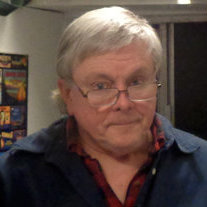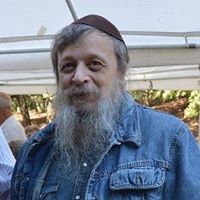Search the Community
Showing results for 'Dream'.
Found 19 results
-

Before Talking To The Teacher: Observe Yourself
Mark Foote replied to johndoe2012's topic in Buddhist Discussion
From the piece I'm currently writing for my own site: The mindfulness that was Gautama’s way of living was composed of sixteen observations and contemplations, each to be made in the course of an inhalation or exhalation. I have summarized what I consider to be the actionable elements of that mindfulness: 1) Relax the activity of the body, in inhalation and exhalation; 2) Find a feeling of ease and calm the senses connected with balance, in inhalation and exhalation; 3) Appreciate and detach from thought, in inhalation and exhalation; 4) Look to the free location of consciousness for the automatic activity of the body, in inhalation and exhalation. Why the emphasis on breath? As I wrote previously: There’s a frailty in the structure of the lower spine, and the necessity of breath can place the point of awareness in such a fashion as to engage a mechanism of support for the spine, often in stages. The key to detaching from thought is to appreciate thought--I can usually do that, even if I only appreciate that I still have a mind that thinks, regardless of what I think of the contents! Something else you might find useful, also from my current write: In Gautama’s most famous sermon (Satipatthana, MN 10), the mindfulness of feelings consisted of mindfulness of the pleasant, the painful, and the neither-pleasant-nor-painful of feelings. In the mindfulness that was Gautama’s way of living, the mindfulness of feelings consisted of a mindfulness of feelings of zest and ease, feelings that he identified as belonging to the first concentration. In my experience, the feeling of ease associated with concentration is the feeling of ease associated with activity of the body by virtue of the location of consciousness. Activity of the body can follow automatically as the location of consciousness leads the balance of the body. Automatic activity of the body by virtue of the location of consciousness has a feeling of ease, and initially a feeling of energy (or “zest”) as well. Gautama spoke of the extension of the feeling of ease, an extension such that “there is not one particle of the body that is not pervaded by this… ease”. He used the words “steeps, drenches, fills, and suffuses” to describe how the feeling of ease pervades the body, indicating that the feeling is accompanied by a fluid sense of gravity. The extension Gautama described maintains an openness of the body to the placement of consciousness at any point, and to ease through automatic activity of the body by virtue of the location of consciousness at that point accompanied by a sense of gravity. Regarding the location of consciousness: Modern neuroscience now includes the study of the “bodily self”: A key aspect of the bodily self is self-location, the experience that the self is localized at a specific position in space within one's bodily borders (embodied self-location). (Journal of Neuroscience 26 May 2010, 30 (21) 7202-7214; https://doi.org/10.1523/JNEUROSCI.3403-09.2010) The “self… localized at a specific position in space” is commonly associated with consciousness. The Indian sage Nisargadatta described the self as “the consciousness in the body”: You are not your body, but you are the consciousness in the body, because of which you have the awareness of “I am”. It is without words, just pure beingness. Meditation means you have to hold consciousness by itself. The consciousness should give attention to itself. (Gaitonde, Mohan [2017]. Self – Love: The Original Dream [Shri Nisargadatta Maharaj’s Direct Pointers to Reality]; ISBN 978-9385902833) The “specific position in space” of the “consciousness in the body” is often assumed to be fixed somewhere behind the eyes. Zen teacher Koun Franz suggested that the location is not fixed: … as an experiment, I recommend trying it, sitting in this posture (legs crossed in seated meditation) and trying to feel what it’s like to let your mind, to let the base of your consciousness, move away from your head. One thing you’ll find, or that I have found, at least, is that you can’t will it to happen, because you’re willing it from your head. To the extent that you can do it, it’s an act of letting go–and a fascinating one. (“No Struggle [Zazen Yojinki, Part 6]”, by Koun Franz, from the “Nyoho Zen” site, parenthetical added) -
On one of those very rare (once in several years) occasions when I get what I call dream-visions, I was visited by a jellyfish UFO. It appeared in the sky, swimming through the air the way jellyfish swim in the water. It was a biotechnological thing, alive and sentient but also a vehicle. I won't tell the whole story (I may have at the time it happened, years ago), but I get a jolt of recognition every time I see pictures or video of some rare jellyfish from the deep ocean, with lights all over and everything looking similar to that magnificent thing from my vision, only simpler.
-
I just happened to swing by for a visit and and I saw this old thread of mine from almost 3 years ago had popped up again. My own views and experience since then have continued to grow and evolve. What I would like to offer up for consideration now is that some ordinary every day people who don't practice any form of cultivation can live well into their 80's and 90's while still being able to function reasonably well and still have pretty decent mental clarity. A smaller few even make it to the low 100's while still being able to get around to some degree and some still seem to have pretty decent mental clarity. At the very least, the neidan practices I am familiar with are supposed to bring good health and also notably increase longevity (yes, in my experience those are some common claims made about the benefits of neidan practice), yet I personally don't know of many daoists in modern times who have done too much better than many ordinary folks in the health and longevity areas once they get older. Any 'spiritual' benefits beyond these more mundane benefits would be very hard if not impossible to quantify, but the basic achievements of good health and longevity well into old age don't seem to be too far above the average of 'ordinary' people. That's not to say I think neidan practice can't help improve health and longevity, because I actually think it can, but just that I wonder if there really are many who truly achieve even those basic goals in neidan practice which would place them very much above the norm for health and longevity into old age. Some may well do, but it doesn't seem to be too overly many that I know of, anyway. Therefore I would suggest that we should just feel blessed if we can truly achieve good health and mental clarity into old age, and also achieve true longevity above the norm if one desires that. Talk of 'spiritual immortality', etc., seems a pretty lofty goal when many don't seem to even achieve good health and mental clarity into old age beyond what is the norm. In my view, if you can truly achieve and maintain good health and mental clarity well into old age, you would be doing very well indeed in your daoist and related practices. I truly wonder whether we even really need any special 'spiritual' cultivation beyond just trying to understand self better and improve on our interactions with others, as certain schools of thought are that we are all 'immortal', anyway, and we are actually here experiencing this physical life 'dream' by choice made at some deeper level. I can't say for certain what is true or not true in that regard, but I am inclined in that direction. At any rate, any practice that is really beneficial should, of course, have notable practical advantages for you over time. If you just seem to be spinning your wheels, maybe it's time to do some re-evaluation. Best wishes to all.
-
The green abyss of cabbage wind whispers with a square echo in the emptiness of carrot eyes. Through transparent walls rushes the crimson scream of a giraffe dancing on the edges of forgotten numbers. Eleven moons wept glassy shadows when yesterday's rain forgot why it was falling. And only the fish, closing the book of inevitability, understood the meaning of what never existed. Hypothetical little bells stretch into nowhere, but no one comes there anymore, for time has dissolved in the scents of a forgotten dream.
-

Jasper Lake Maoshan (Jason Read Daoist Magic)
Nuralshamal replied to Nuralshamal's topic in Daoist Discussion
@stirling Thanks for sharing your thoughts I actually enjoy our exchange. Yes, I agree, this is also the view I was philosophically taught and forced myself to subscribe to most of my life, that we are Brahman or the Absolute. Which I still agree with I also really like and enjoy Buddhism and see all the benefits it brings, including its views. It's super helpful for meditation and self-inquiry, and really great to go to the Absolute. However, I always felt it weird and in complete opposition to my own personal basic experience of life, as well as that of the vast majority of people; firstly that the one true God doesn't exist, and secondly the individual as a True Person (as opposed to a construct) also doesn't really exist. The very first spiritual experiences I had was of this unique, individual Self, the Atman in Hinduism, the Ruh in Sufism, I felt it to be self-evident that this is the basic, fundamental reality for all of us. A bear, a cat, a fish, they're individuals moving about in the ocean of existence, full of other individuals. All one in the ocean, but each with their unique characteristica. Just like two raindrops (even though water) are completely unique in structure if you zoom in with a microscope. Similarly with snowflakes, or grains of sand, or even just two rocks. If you go and speak to people and ask how they experience themselves and their daily life, they indeed experience themselves as an individual interacting with other individuals. Of course great scientists and great saints see and experience reality in a profound way that the majority might not, but if what they come up with is in direct opposition to the basic experience of reality, of course we should be curious as to why, and which of these findings it really makes sense for us to take and live by as our own. Simply to hold it up to our own basic experience and see where it matches up and where it doesn't. Not as a final conclusion, but a temporary hypothesis. Just to avoid being mindless followers and instead think for ourselves. And I generally feel (myself included) that it brings more harm than good to take the conclusions of others from thousands of years ago and praise it as absolute truth, even if it doesn't match our own basic experience of life and of ourselves. I think it should be the other way around: firstly we investigate our own basic experience of life, then we sample the conclusions of the wise (scientists and saints) and see how it helps explain our experience. If I had done this I would have been a much happier and fulfilled man today, instead of living on group-think (no matter how well-intentioned) for decades. But of course I had to go through all these experiences in order to find my own truth, which is now resulting in my personal fulfillment and happiness. It kind of makes sense, that at the end of the day, fulfilling your own dreams will give you more personal happiness and satisfaction than fulfilling the ultimate dream of a complete stranger from 1000s of years ago. It's kind of like taking a tiger and training it to shave, beg for food, meditate and be a vegetarian, it's just silly. That's not the level it's at. It needs to live in harmony with it's evolutionary step, in Hinduism and Buddhism its personal dharma. Only then will it firstly enjoy personal fullfillment and happiness, but it will also serve it's intended purpose in the cosmos (the Brahman). Similarly that's what happened to me and honestly the vast majority of white, western people I've seen in my life. They're really a tiger, but force themselves to live like sheep. Or they're really a fish, but force themselves to live like a lizrd (just to give an example that's more neutral, I see the tiger vs sheep could indicate a bias, which wasn't my intention). Just meaning that they pursue something else than the basic truth of their life and station (as intended by the cosmos), so firstly they never find true happiness, and even worse, they actually avoid fulfilling their true dharma. If you're intended to be a lifelong celibate monk on a mountain, go for it. You'll achieve happiness and also serve your dharma. However, if you're intended to be a businessman, a family man, a warrior or soldier, a security guard, a tantric sex master, a scientist, you'll never find happiness as a celibate monk on a mountain, and most importantly you'll actually let down the intention of the cosmos. My intention is not to say that any path is superior, as I obviously think it's true for some people to go down that path towards the Absolute, my intention is simply to share my own personal experience in order to hopefully inspire people to think for themselves, and realize that if they're really a bear deep down, go live a bear life, if you're a fish, go swim, if you're a bird, go fly. Instead of trying to be a cat when you're really a dog If you're really an Absolutist, go for it! Surf in the Absolute, enjoy the cosmic experience however, if you deep down long for love, great sex, living a sucessful life materially, that's what you should go for, not what someone else prescribed a completely different people 1000s of years ago. So if your soul is really a Buddhist, go for it Stirling!! glad you're on your true path -
I think the answer depends on what practice you are referring to. In neigong and Daoist practices, my teacher never recommended or taught any type of visualization, not even in qigong practice. On the other hand, we did discuss location and characteristics of points and meridians so to say there was no visualization involved is a bit inaccurate, IMO. I believe one reason to minimize visualization is to prevent the conceptual mind from engaging and misguiding the attention and interfering with the practice. My Daoist teacher’s core instruction was to focus on the practice instructions and the experience of practice rather than conceptualize, analyze, or follow the intellect. It was more about focusing and training the attention than creating any internal imagery. He even discouraged reading and study in favor of investing that time in practice. While those things have a valuable role in our lives, we rarely experience the world in any other way so it is important to learn to use the attention in a different way so that we are not overly dependent on, and consequently limited by, our intellectual and conceptual faculties. In Bön and Buddhist systems, visualization is useful and widely used. It is very useful for concentrating, focusing and training the awareness and attention which are otherwise prone to distraction and preoccupation. I think it could be especially valuable to us in this high-tech age when we always have ready access to every answer, image, or explanation we could desire at the touch of a screen. Our powers of focus and attentiveness aren’t getting enough exercise, not to mention our memory and other cognitive functions. In tantric practices, visualization is a core element and it’s efficacy can be readily seen in the results of practices like trul khor, tsa lung, tummo, chöd, dream yoga, deity yoga, and so forth. In these practices, it generally refers to a sequence of steps rather than a single, simple creation of a mental visual image. For example, we may first create and stabilize the visual imagery, then allow this to deepen into a more comprehensive imagination that goes beyond visual representation and may include other senses, then to a more intuitive felt sense of the thing, even a channeling of characteristics and qualities, and finally to simply being, or full embodiment. My teacher would often instruct in a retreat to first visualize, then imagine, then feel, then BE, eventually skipping the early steps when not needed. It’s important to acknowledge that visualization can mean different things. It can mean creating an internal visual image of something; it can be a wider imaginary representation that can include sound, smell, taste, and feel. It can be more intuitive. It can be to conjure up a memory or a plan. It can be creation of a feeling in the body like heat; it can be to imagine the pain and suffering of others and bringing that into one’s own field of awareness, lots of permutations are possible. I think it is difficult, if not impossible, to entirely exclude visualization in its myriad forms from our practice. For example, even those who emphatically discount the value of visualization in Daoist neigong carry in their minds some representation of the inner architecture, the inner anatomy, the expected and conceptualized characteristics of energetics, the expectations for outcome and so forth. All of this is, to some degree, visualization, IMO, and all of it can be useful. Visualization is a wonderful tool even in largely physical activities like golf, tennis, music, martial arts, weight lifting, etc… The power of mind is not to be underestimated. I heard a marvelous story of Arthur Rubinstein. He accepted a last minute invitation to play a piano concerto in London, one he’d not practiced or played in years. On the transatlantic flight, he spent hours visualizing the score in his mind and playing through it from beginning to end. He arrived in London and performed without error. My music teacher often recommended I use this technique to practice when I didn’t have the opportunity to actually use an instrument.
-

If there is no self then how does rebirth work?
Lairg replied to Tommy's topic in Buddhist Discussion
Long ago I had a dream that helped me distinguish the absolute from manifested existence - by observation. By absolute I mean what is - before and after the transience of universes and species It is common for humans to anchor a thread of the absolute. -

Self-knowledge and mystical experiences - James Swartz
stirling replied to dwai's topic in General Discussion
Enlightenment is an entirely objective realization. Enlightenment (oneness as you put it) breaks the subject/object way of seeing. It wouldn't be oneness unless it did! Agreed, except that no human will ever CONTROL their thoughts, what is required is to let thoughts settle out by no longer stoking and feeding them into mental dialog. Thoughts and feelings don't ultimately belong to a "self", they arise and pass away in awareness in the same way that anything else - the wind, a bird flying by, an ache - arise and pass. It isn't. Realizing that we ARE that awareness is. How would you know? No human has ever been enlightened. Enlightenment has only woken up to itself. Humans are part of processes, unfoldments, gods, social clubs, and the rest ONLY in the dream of separateness - duality. Enlightenment is the realization that what we ARE is that pure awareness. It rather changes the rules somewhat. -
A key aspect of the bodily self is self-location, the experience that the self is localized at a specific position in space within one's bodily borders (embodied self-location). (Journal of Neuroscience 26 May 2010, 30 (21) 7202-7214; https://doi.org/10.1523/JNEUROSCI.3403-09.2010) The “self… localized at a specific position in space” is generally associated with consciousness. The Indian sage Nisargadatta described the self as “the consciousness in the body”: You are not your body, but you are the consciousness in the body, because of which you have the awareness of “I am”. It is without words, just pure beingness. Meditation means you have to hold consciousness by itself. The consciousness should give attention to itself. (Gaitonde, Mohan [2017]. Self – Love: The Original Dream [Shri Nisargadatta Maharaj’s Direct Pointers to Reality]; ISBN 978-9385902833) "The consciousness should give attention to itself"--that's "meditation on an object", but also "the experience (of consciousness) localized at a specific position in space within one's bodily borders". Gautama described the first concentration as like a bath-ball, gathered out of soap powder scattered in a copper basin and sprinkled with moisture. The bath-ball should be kneaded, he said, until it no longer oozes moisture. I would say that's returning a presence of mind to the location of consciousness until the presence is steady. Gautama continued his metaphor by saying, “even so, (a person) steeps, drenches, fills, and suffuses this body with zest and ease… so that there is not one particle of the body that is not pervaded by this lone-born zest and ease”. The zest and ease that Gautama referred to I believe are the zest and ease born of activity of the body by virtue of the location of consciousness. When the activity of the body in inhalation and exhalation takes place by virtue of the location of consciousness, feelings of zest and ease arise. The suffusion of the body with zest and ease such that "there is not one particle of the body that is not pervaded" by zest and ease is "the whole field of awareness as the object", at least as far as consciousness in the body. Ptahhotep east wall, 25th century B.C.E.
-

Self-knowledge and mystical experiences - James Swartz
doc benway replied to dwai's topic in General Discussion
This is why dream yoga can be such a powerful practice. You see this directly when awake in the dream. It helps loosen the solid feeling of waking “reality" -

Self-knowledge and mystical experiences - James Swartz
dwai replied to dwai's topic in General Discussion
But really, there is nothing apart from awareness, things just appear to be separate. Like how in a dream the dreamer’s mind splits into subject (witness) and objects (dream world). There is no “world” apart from the dreamer’s mind. The waking reality is also like that -

Self-knowledge and mystical experiences - James Swartz
dwai replied to dwai's topic in General Discussion
In Vedanta it is called “para” (absolute) and “apara” (local) jnana (knowledge). The deeper (para) knowledge is pure awareness (chit) itself. The local (apara) knowledge is knowledge of things. The pure awareness is reflected in the mind leading to local knowledge. The way to know this awareness is simply by being aware. But it is so subtle, and the mind is so used to grasping at objects that this awareness is missed (but it’s always present, hidden in plain sight. That’s why the wise say “one is not even a hair’s breadth apart from Dao/Brahman”… But really, there is nothing apart from awareness, things just appear to be separate. Like how in a dream the dreamer’s mind splits into subject (witness) and objects (dream world). There is no “world” apart from the dreamer’s mind. The waking reality is also like that. -
Many years ago I had a long dream about being in a prison camp. Someone disobeyed the rules but I was punished. I woke up feeling it was quite unfair. When I asked in meditation I was told that when someone in a group offends, it does not matter who in the group is punished. Many years later that is still my observation. This means that group karma can be reassigned within the group - sometimes on request Personal karma has to be dealt with directly - typically by forgiving oneself and the other parties. When the learnings are achieved, mostly the personal karma is resolved. The alternative is growing out of that level of consciousness so that the denser energies are discarded and the learnings are no longer relevant
-

If there is no self then how does rebirth work?
Lairg replied to Tommy's topic in Buddhist Discussion
Consider scientific discussion of a multiverse. Consider also the concept of parallel timelines. Does the spirit incarnating as a human have parallel processes? It seems that spirits are often not too happy with a single, often ineffective, human incarnation and thereby are allowed up to 12 parallel incarnations. The dreams where we meet people we know well, that look differently in the dream, may be data/learning exchange occurring when out of the physical body This view is contrary to what I was taught as a child, that humans are the center and high point of creation. Life is not always what we are taught -
Hello all, I’m very excited to join this forum. I have been very interested in the topic of cultivating sexual energy for the purposes of health longevity. I also am very interested in the idea of using the cultivated energy to manifest things in my life and also as a means to help people on their healing journey (I am an acupuncturist). I’d like to hear where people stand on this viewpoint of the practice. I chose the name “Rainbow Serpent” because I noticed that the Toltecs had the same concept of cultivating sexual energy for what they call the “Dream body’ or “rainbow body”. Healers of this tradition cultivate this body for the sake of health longevity and to help in healing others. that being said, I understand that this is a daoist forum so I’m very much looking to learn more about the eastern perspective. I look forward to discussing with all of you
-

Sri Vidya, Yantra, Mantra, Tantra, Mudra, Guru Karunamaya
Nuralshamal replied to Nuralshamal's topic in Hindu Discussion
Hey everyone, Just wanted to do a small update to what I've written earlier about the pros and cons of Devipuram, Karunamaya and Sri Vidya Tantra Peedom. Karunamaya To Karunamaya's "pros" I would add that he personally as a sadhaka has really put in the work. His mantra dikshas (initiation) are actually the ones I felt I got the most energy from. I feel like he's probably done the most sadhana personally out of the different schools, lineages and teachers I'm mentioning - aka he's the most powerful. Devipuram I would say a small critique of Devipuram since last - they cancelled an onsite program because out of 20 aspirants they deemed only 6 qualified, and they wanted at least 10 to do a program. From a practical perspective, it kind of makes sense. However, if you remember from last, I listed it as a con that there's very few programs, you have to wait several years. So if they were already super busy, it would make sense, however with them not really doing a lot of programs, it seemed odd and somewhat lazy. Further during their explanation of why they cancelled it, their main argument was that if other people from around India saw sri vidya students from Devipuram not being "qualified" (like I said, they said only 6 out of 20 were qualified), e.g. not doing all steps properly, that would reflect badly on Devipuram. So in short, it was actually an ego-reason! They care more about their own social standing and reputation than actually helping other people advance in sadhana. Compare this to Vethathiri Maharishi (founder of Simplified Kundalini Yoga, SKY) who in his early days as a guru took a 3 hour bus ride just to awaken the kundalini of an aspirant. When he got there, the aspirant wasn't even home! He had forgotten the appointment and gone to the city to see a movie in the cinema. Then Vethathiri waited for 7 hours until that person came home, awakened his Kundalini, and then went home. He even instructed my SKY teacher that even if there is just 1 person wanting to learn, you should teach. Something I've followed as a SKY teacher too. So his main motivation and concern is helping and assisting his fellow man. Compare this to Devipuram: slightly lazy and ineffective, main motivation is their ego-pride, social standing and reputation in Indian society, and even with 6 qualified students they would rather wait and have the students be inconvenienced than themselves hold some workshops. In short, they want others to carry "the burden" / the suffering instead of themselves making an effort. A person's behaviour, love and treatment of his fellow man is the only true measure of spiritual development in my opinion - not powers, energy, status, convenience, authority or anything like that. So felt like Devipuram made a wrong choice there, showcasing their true motivations. I feel like their whole approach is actually not focused on Sri Vidya, helping sadhakas advance, helping people and so on, Devipuram itself as a political project is actually their main concern. Compare this to the founding Guru Amritananda, he really wanted to spread love, joy, bliss and Sri Vidya. That was without a doubt his main motivation. Devipuram was just an extension of that. Think about all the social taboos he broke, all the criticisms he faced, he didn't care - he kept pursuing the spread of love regardless of race, religion, nationality and social standing. Sri Vidya is the most secret and occult Goddess worship, all the mantras and methods were highly secret, only taught to respected men over 40, just like Kabbalah. He opened it to all, and gave everyone mantras, methods etc, even people from other races and religions, no discrimination, we're all one. And all the nudity, eroticism and sexual methods, India is already super conservative, all brahmins, priests etc, all really critiqued him. Yet nothing could stop him. Just like Moses, Jesus or Muhammad. Moses was in the desert with wife and kids, he could've just stayed and enjoyed. But prompted by God, he had to endure so many tests, so much suffering, and even after managing to free the people, he had to endure their troublesome nature for 40 years in the desert! And he only saw the Promised Land, he never even entered. Like Jesus too, tortured, ridiculed, spat on and put to death. Even Muhammad, he was very respected and had high social status. He lost all that. The first 3 years after his revelation, he was spat on, they threw rocks at him, he lost all his status and respect, but he still soldiered on. I feel that's a great testament of a real man - truth over comfort. Only with the strength given from God can someone endure things like that and still soldier on. Amritananda as well. Vethathiri too, he also faced severe financial struggles and social ridicule, but that didn't stop him. They all kept on keeping on, following Divine Guidance, to help and uplift the very people that directly attacked and opposed them. Rama also - he could've gone against dharma and the vows of his mother, and just stayed in the palace. But he followed Dharma. Again, when Ravana kidnapped Sita, he could've just gotten a new girl, but instead he fought a whole war to restore dharma. Impromptu poem about truth over comfort: fight fight fight, fight with all your might, keep doing what is right, fight the good fight Sri Vidya Tantra Peedom I would change almost 100% what I said last time. I would not advice anyone to go for any of their free programs. Their paid programs are good, very technical and precise, however super slow. They spend 1-2 hours communicating what an average educated westerner would communicate in just 5 minutes. The best approach I've found is that, say in a 2 month program, you simply attend their "practice sessions" which are about 1x/month. The whole 2 month program you can get in just 2 hours, instead of 1 hour a week totaling 8 hours. And make sure it's paid. Here they're friendly, helpful, respectful and professional. In the free programs, my God, it's complete insanity. In all of my life I've never suffered such cruel and inhumane treatment. And I was 14 years in the army and deployed more than 3 times to warzones! It's like because it's free, they feel like "they want to make you pay", but instead of money, you give away your basic human dignity. So I would advice any sane, normal person, especially from the Western World to only opt for paid programs and thereby preserve your dignity as a person. The abuse, cruelty, inhumane and bad treatment on the free programs are torture to the human mind, heart and soul and completely divorced from what spirituality is supposed to be. There's a completely split between what they're teaching and how they themselves act as people towards you. I will say that I saw 2 very friendly, loving, helpful and just actually "normal" people volunteering, however the main people were exceptionally cruel, borderline evil to be honest. I dare not dream what they would do in a real position of power. Conclusion Now I've shared a bit further my experiences. My own purpose of course is simply to help as many people as possible - giving as clear, real, truthful and honest feedback about my personal experiences. So you have the best possible facts available before deciding if Sri Vidya is something for you. Of course you could experience it differently, we're all unique after all. But now you have at least 1 truthful testimony And lastly I will just say in general about Sri Vidya - it's really good it's so cozy to do the pujas, homas and tarpanas together. I feel Hinduism is just such a family-friendly religion. It's so much fun to do the tarpana (water ritual), it's like you're a child all over again, playing. Because in the beginning you build a figurine out of water and turmeric (again, it's just like being a child again, remember when you were little? Producing things out of clay was fun, for no reason, no ultimate objective, it's just play, it's a fun, creative expression). When you've molded it, now you have to aim and "shoot" the mantra energized water, and then you need to make sure the figure is completely melted again by the end. In the beginning of a 41 day mandala (daily tarpana), you might not be able to melt the whole thing, as you're simply not that skilled in shooting the water. However after a while you become a master, and you just melt that thing in no time. It's good, innocent and joyful fun it helps awaken your atma, your soul, your Point of Light, your spark, your innocent soulful nature of pure Being, free from concepts, ideas, self-images, ego and conditioning. Similarly with the fire rituals. Why do we enjoy bonfires? It's just cozy to hang around. And now you can sit in nature with your loved ones, under the trees and shining sun, or at night under the shining stars and clear sky, and have that cozy moment together, playing, throwing things into the fire, and at the same time it's worship. It's uplifting your spirit, producing energy, attracting positivity to your and your life. The mantra energized smoke from the purified offerings and incense all go up to the atmosphere, changing the whole aura and energy field of the place you live and indeed the whole planet. Similarly with puja. I remember when I was a kid (just 4 years old) my dad took me to a village in India for 1 month so he could meditate intensely. When we were there, he bought puja things we could use at home. I just remember when we got back home again, I just loved walking around the house ringing that big puja bell. For no reason - it was just fun It's fun in a very simple, basic, innocent and very soulful way. It's fun to light the camphor and wave it around. It's fun to do the rituals, and it's so cozy to do together as a family. Also because it's active, everyone can get involved so they don't get bored - the kids can shoot water during tarpana too, or help throw things into the fire during the "swahaa". Hinduism is really wonderful in that way. It reawakens that joyful, soulful innocence. I would say it reawakens your atma In the end it's not about gurus, lineages, politics, money, organisations, workshops or classes - it's about you, your soul journey, your joy, bliss, love and fun, you enjoying your time here on this beautiful, green, God-given Earth, living a fulfilling life and enjoying yourself, your friends, family and relationships, and living in natural, daily contact with the Divine within you and around you. God bless you! -
I am not sure how I discovered how to do it, but the basic technique I use is visualizing this (only?) 3D timeline stretching out straight in front of me and straight behind. Then I look for other nearby timelines: to the right and left, above and below. There are lots of useful applications. Timelines seem to exist in clusters - rather like optic fibers in a cable - so there is some cross-talk and some interchange of experiences. Not all cross-talk is good, and the exopolitics site at one stage reported that some Earth humans had been trained to repair local timelines. The interaction between the Montauk work and the Philadelphia Experiment may be an example of improper cross-talk When I have dreams about people I know well but look differently in the dream, I often find them on parallel timelines. Such dreams are used to share experiences and hopefully accelerate progress on related timelines Soft disclosure about parallel timelines is occurring through the parallel universe concept. Universes can only be parallel if they have on-going interconnections. The early Doctor Who shows are also soft disclosure. Perhaps it is better not to know
-

Why were the highest spiritual teachings kept hidden/secret
Lairg replied to idiot_stimpy's topic in General Discussion
In the Hindu tradition we find The Five Electricities. If I cannot find them present, then the proposition/dream/vision/video is not real. The Five Electricities provide life force to Existence http://yogananda.com.au/holy_science/holy_science10.html https://archive.org/stream/HolyScience/45849064-Sri-Yukteswar-Giri-The-Holy-Science_djvu.txt -

Psychotic behavior resulting from occult study.
Cadcam posted a topic in Esoteric and Occult Discussion
I was always a minor dabbler in occult and mystical things, casually reading and adopting different magical ideas, but then a spirit got ahold of me and I stumbled into serious belief, yet, I did not know what to believe. I started searching and what I found led me to pain and madness. I found myself living out ideas that evolved on their own, and started overlaying my daily waking awareness mixing with dream and fantasy. I would act out in response to the hallucinations. Eventually these fantasies would break, and I'd wind up in a deep depression. This has been going on for 20 plus years, and after this last psychosis, I think I have broken this curse, because all of the ideas and experiences culminated in a total breakdown. Crossing my fingers.








